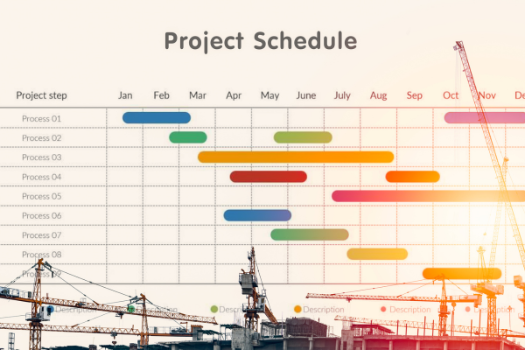.png)
Bid Smarter, Not Harder: Strategies for Competitive Yet Profitable Bidding
In construction, the lowest bid often wins. But that doesn’t mean it makes money.
Many contractors land jobs, only to find out later that margins are razor-thin—or worse, gone completely.
Bidding too low can hurt your business. But pricing too high means you lose the job. So how do you stay competitive and profitable?
It comes down to bidding smarter.
In this post, we’ll break down real strategies that help you win the right jobs, keep your margins, and grow without burning out or selling yourself short.
Know Your Real Costs
Before you bid, you have to know your numbers. All of them.
Start with the basics:
- Labor
- Materials
- Equipment

Now go deeper:
- Overhead
- Insurance
- Admin
- Permits
- Any special costs tied to that specific project
Don’t forget to add a contingency buffer. If something unexpected happens—and it always does—you’ll be covered.
Use past jobs to guide your pricing. What went over budget? Where did you pad too much?
The goal is accuracy, not guessing. If your costs are wrong, your profit is gone before you even break ground.
Smart bidding starts with solid estimating. Get that part right, and you’re halfway there.
Choose Projects That Make Sense
You don’t need to chase every project. In fact, you shouldn’t.
Smart contractors are selective. They go after jobs that match their team, timeline, and profit goals.
Ask yourself:
- Do we have the right crew for this?
- Is the location manageable?
- Does the client have a good payment track record?
- Is the scope realistic?

Also, watch for red flags—tight deadlines, unclear drawings, or too many bidders. If it smells risky, walk away.
Use your energy where it counts. Spend your time bidding on work that fits your business—not just fills your calendar.
Track and Improve Your Bid-Hit Ratio
Your bid-hit ratio tells you how many jobs you win compared to how many you bid.
If you’re bidding 10 jobs and winning 1, that’s not efficient. You’re spending too much time with too little return.
Start tracking your results. See where you’re winning—and losing.

Patterns will show up:
- Maybe you do better on smaller commercial jobs
- Maybe your margins are higher on public sector bids
- Maybe certain GCs just never pick you
Use that data. Cut the bids that aren’t working. Focus on the ones that are.
You don’t need to win every job. You need to win the right jobs. The ones you can deliver well—and profit from.
Add Value Without Cutting Price
Many contractors drop their price to stay competitive. But that’s not your only option.
Instead, offer value that sets you apart.
Can you propose a better material? A faster install method? A way to reduce waste or downtime?
This is called value engineering. It shows clients that you’re thinking ahead and solving problems—not just building to spec.

Even small suggestions can make a difference. Clients notice when you help them save time or money in smart ways.
You’ll stand out without racing to the bottom. And you keep your price—and your margins—where they should be.
Use Digital Tools to Estimate Smarter
Estimating by hand or spreadsheet takes time—and leaves room for error.
Smart contractors use tools that speed up the process and improve accuracy.
These tools help you:
- Pull up-to-date material costs
- Adjust for labor rates by region
- Build estimate templates you can reuse
- Generate clean, consistent proposals fast
They also help you track win/loss trends, project profitability, and bid history—all in one place.
With BidLight, you can see where your numbers stand before you submit. No guesswork. Just good data, clear pricing, and better decisions.
That’s what helps you bid faster and smarter.
Build a Bidding Process You Can Rely On
The smartest companies have systems.
They don’t wing it from job to job. They use checklists, templates, and a clear process.
Here’s what a strong bid process includes:
- A go/no-go checklist
- A pre-bid review with key team members
- Clear estimating and approval steps
- Post-bid reviews to learn from wins and losses
This doesn’t have to be fancy. It just has to be consistent.
A process saves you time. It reduces errors. And it helps your whole team stay aligned and focused.
That’s how you stop reacting—and start bidding like a business.
Conclusion: Winning Isn’t Enough—Profit Matters Too
Getting the job doesn’t mean much if you don’t make money on it.
That’s why smart bidding isn’t just about submitting more—it’s about bidding better.
Know your costs. Choose the right projects. Use tools that help you move fast and bid accurately.
At BidLight, we help contractors build better estimates and bid with confidence.
You don’t have to win every job. You just have to win the ones that grow your business.
So bid smarter. Stay competitive. And protect your bottom line.